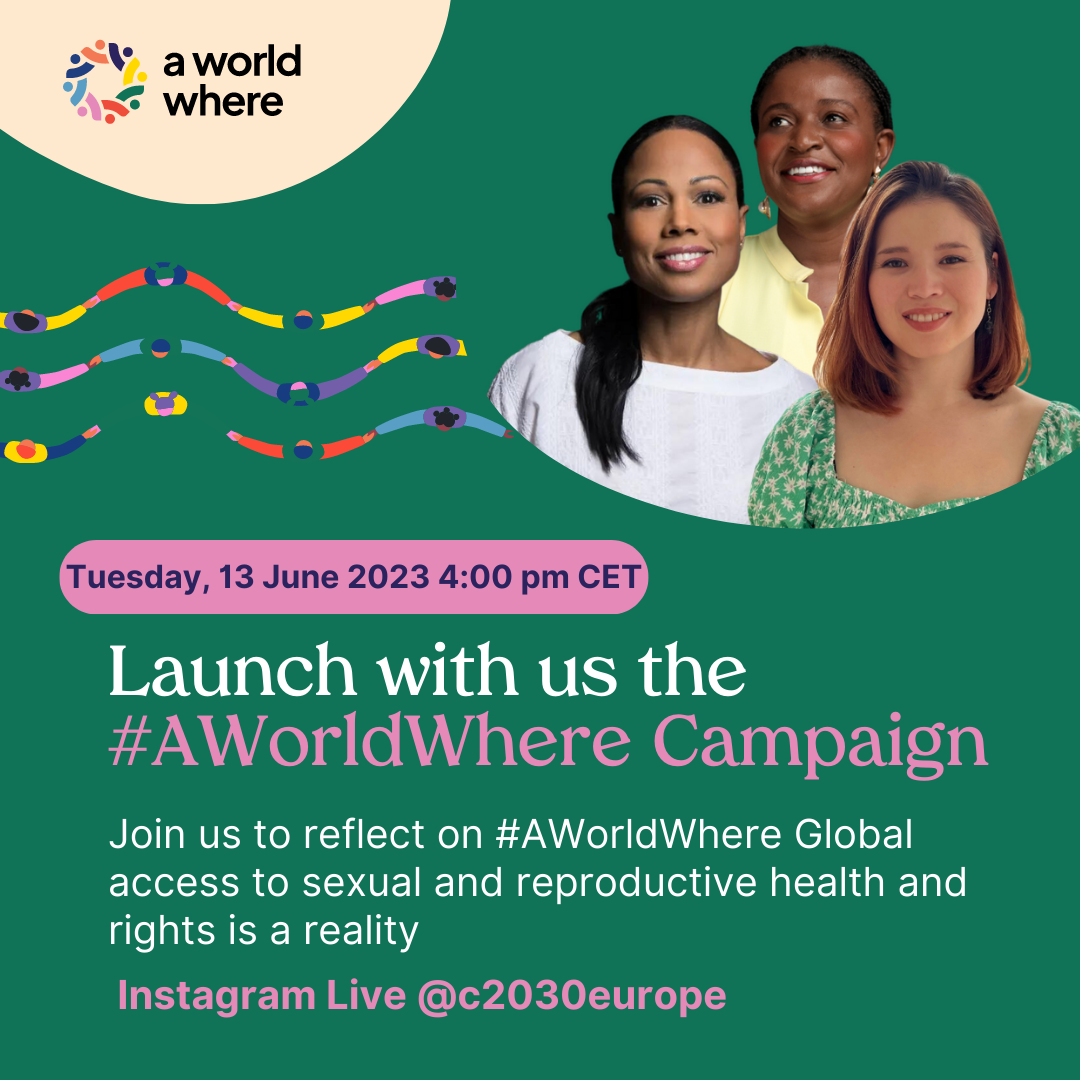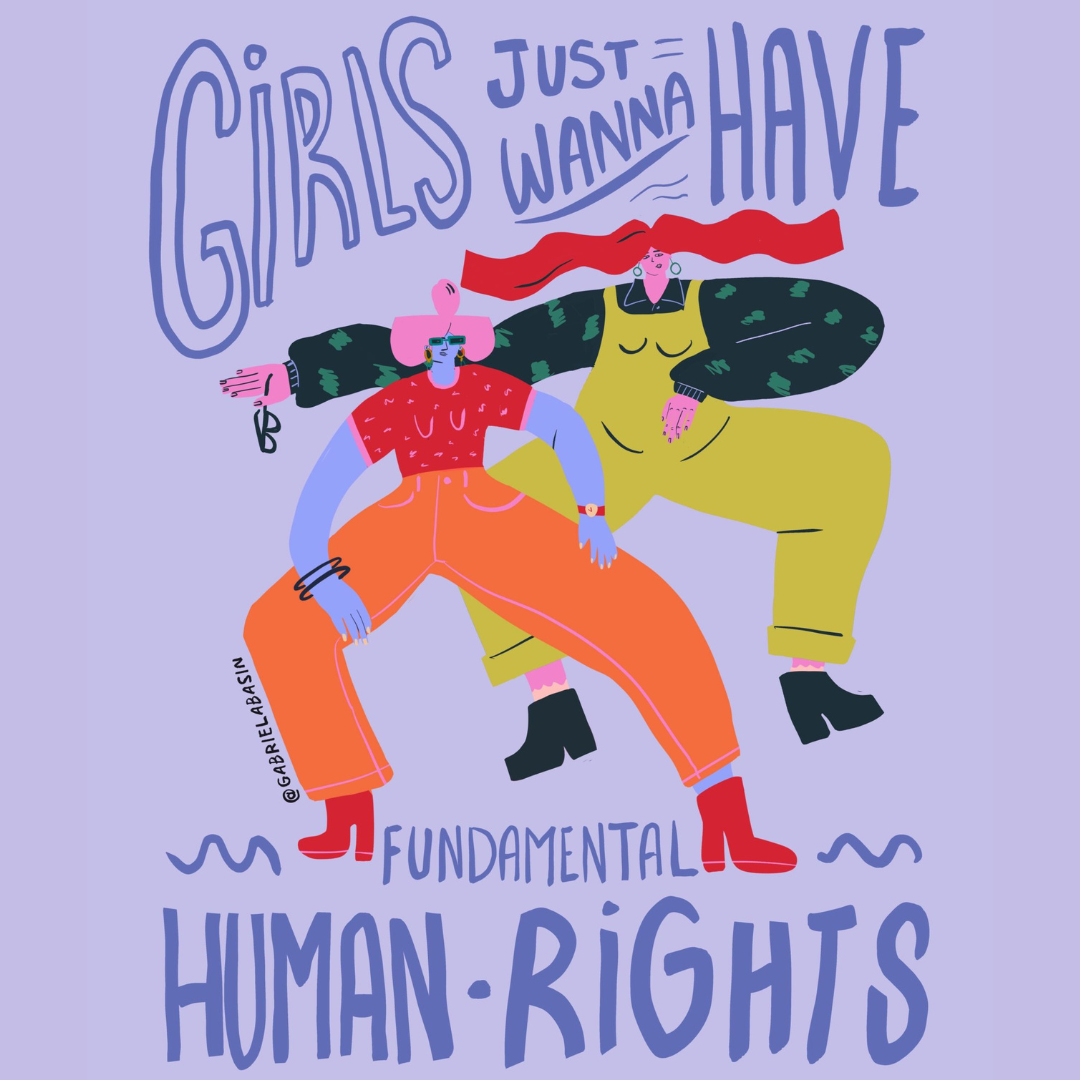No matter where you live, who you love or the content of your wallet, you have the right to the highest attainable standard of health, to gender equality and to health equity. Everyone has the right to access the care they need without fearing they will go bankrupt when they do. To guarantee this, the Universal Health Coverage (UHC), and at its core, access to sexual and reproductive health and rights (SRHR), must be achieved.
In May 2022, the European Commission announced that it would renew its Global Health Strategy, that was first published in 2010, and is now consulting all relevant stakeholders, including civil society organisations. The renewal of the EU Global Health Strategy had been a longstanding advocacy call from civil society organisations, as the strategy was not fit for purpose anymore, and did not include several important topics such as SRHR. The COVID-19 pandemic has clearly shown that we are members of an interconnected society – and we depend on each other. What affects one of us, affects all of us, and we are thus stronger together. The pandemic has also shown the cracks in our systems and that we are not on track to achieve the Sustainable Development Goals (SDGs), and especially SDG 3 on health, by 2030. The renewal of the EU Global Health Strategy therefore arrives at a critical moment to still reverse this trend and to put solidarity and the right to compassionate care for everyone front and centre.
The European Commission has a unique opportunity here to advance the right to health and move the world forward in achieving the SDGs and UHC. Advancing UHC is key to achieve SDG 3 on health and to realize the right to the highest attainable standard of health for all, without financial hardship. It includes the full spectrum of essential, quality health services. This standard cannot be achieved without including a comprehensive package of SRHR services, based on the Guttmacher-Lancet definition. It should include in particular antenatal, safe delivery and postnatal care; safe abortion and post-abortion care; contraception; prevention and treatment of sexually transmitted infections including HIV, infertility, reproductive tract infections and reproductive cancers; and services to address gender-based violence. In addition to being essential to achieving SDG 3 on health, SRHR are necessary preconditions for gender equality (SDG 5), ending poverty (SDG 1) and contribute also to better education achievements (SDG 4).
If the European Commission wants its Global Health Strategy to achieve its objectives and in particular to move the SDG and UHC agendas forward, it must:
- Recognise SRHR as an indispensable and integral component of UHC and of the Global Health Strategy, critical to the realisation of the right to health, sustainable development and a necessary precondition for gender equality, non-discrimination and ending poverty;
- Commit to a rights-based, intersectional approach to SRHR, promote the respect of everyone’s SRHR and support universal access to integrated and comprehensive SRH services for all individuals who need them, regardless of their age, marital or socio-economic status, disability, race or ethnicity, sexual orientation, gender identity and sex characteristics;
- Actively engage communities in developing and implementing the Global Health Strategy, as their participation is key to building health services that are responsive to the local needs of communities;
- Prioritise funding for SRHR in EU programmes at country, regional and global levels and financially supporting CSOs which implement community outreach, awareness raising, service delivery and advocacy programmes, all key to achieving SRHR and health for all;
- Continue to speak up and support strong global, regional and national commitments in favour of SRHR in multilateral fora, including at the United Nations, and in political dialogues with partner countries.
We can decide as a society to act together for the health of all of us. Only by doing so will the European Commission and the EU as a whole guarantee the right to the highest attainable standard of health, to gender equality and to health equity for everyone, inside and outside of Europe.
Words by Marie Tempesta
Illustration: Daniela Yankova – shadowschaser



